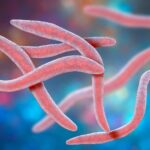• The microbiota-gut-brain axis
• Microbiota-host interactions across the animal kingdom
• Treating social disorders
• Looking ahead
What is already known on this topic
The gut microbiota has been shown to influence brain physiology, so much so that scientists have coined the term “microbiota-gut-brain axis” to describe the communication pathway between gut microbes and the brain. However, little is known about why and when relationships between the microbiota and the brain arose.What this research adds
Researchers reviewed the evidence that links the microbiota with social behaviors, analyzing how the microbiota-gut-brain axis influences aspects of sociability across the animal kingdom.Conclusion
Understanding the factors that affect sociability in different animals could provide insights into human brain conditions such as autism spectrum disorders and social phobia.
The gut microbiota has been shown to influence brain physiology, so much so that scientists have coined the term “microbiota-gut-brain axis” to describe the communication pathway between gut microbes and the brain. However, little is known about why and when relationships between the microbiota and the brain arose.
Eoin Sherwin and his colleagues at University College Cork reviewed the evidence that links the microbiota with social behaviors, analyzing how the microbiota-gut-brain axis influences aspects of sociability across the animal kingdom.
In their work, which is published in Science, the authors propose that understanding the factors that affect sociability in different animals could provide insights into human brain conditions such as autism spectrum disorders and social phobia.
The microbiota-gut-brain axis
Several studies have shown that gut microbes can communicate with the brain in different ways, including the production of microbial metabolites, the activation of the vagus nerve, and the modulation of immune responses.
Rodents that lack the microbiota or whose microbiota has been disrupted with antibiotics show changes in neurotransmitter turnover, neuro-inflammation, neurogenesis, and neuronal morphology.
In particular, germ-free mice display different social behaviors compared to rodents colonized with bacteria. And animals treated with beneficial bacteria such as Bifidobacterium and Lactobacillus improve in their social behavior. These findings suggest that microbial signals can influence neurodevelopment and brain behavior.
Microbiota-host interactions across the animal kingdom
Although studies on germ-free and antibiotic-treated animals have started to reveal how gut microbes could influence social behavior, sociability varies across animal species and some interactions may have evolved to facilitate the transmission of the microbiota. For example, in honey bees, social interaction promotes the transfer of microbes that confer resistance against pathogens. And in termites, sociability leads to the transmission of microbiota that aids in food digestion.
Other animals may have evolved to use bacteria to communicate with members of their species. For instance, bacteria in hyenas’ scent glands produce volatile compounds that facilitate social cohesion among members of the clan, and the microbiota of zebrafish has been shown to influence shoaling behavior.
Treating social disorders
In humans, changes in the gut microbiota make-up have been associated with conditions such as autism spectrum disorder. Several clinical and preclinical studies have evaluated microbiota-based interventions for treating social behavior deficits. In people with autism spectrum disorder, supplementing the diet with Bifidobacterium longum and specific Lactobacilli improved anxiety and antisocial behavior as well as sociability, speech, and language communication.
In mice, treatment with Bacteroides fragilis and Lactobacillus reuteri improved anxiety-like and stereotyped behaviors. In some studies, the improvements were observed in male but not female mice.
Looking ahead
Since gut microbes can influence social behavior, and in turn sociability can affect the microbiota, understanding the relationship between gut bacteria and behavior could have important implications for human biology.
However, many studies have relied on correlative associations between the microbiota and social behavior. Work that investigates causal relationships could shed light onto the evolution of brain physiology and behavior as well as disorders of the social brain in people. What’s more, larger clinical trials are needed to confirm the efficacy of microbiota-based interventions for neurodevelopmental disorders, the authors say.











